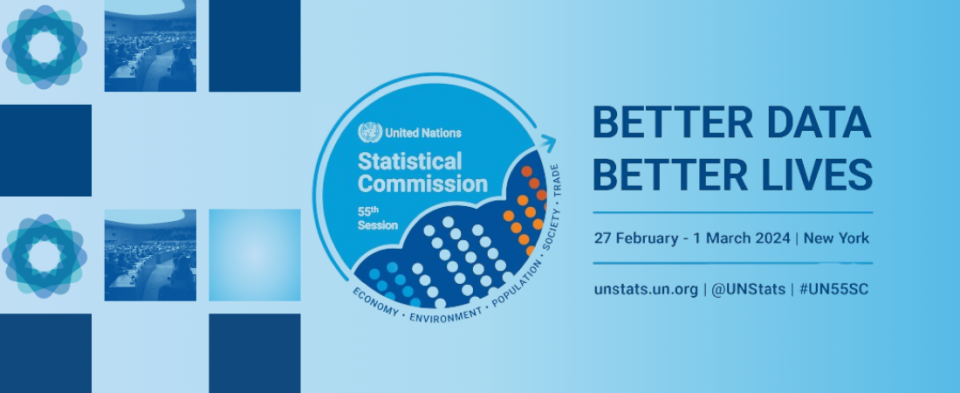Looking Forward to the 55th UN Statistical Commission

Every year, the annual session of the UN Statistical Commission (UNSC) provides an opportunity for the UN Committee of Experts on Environmental-Economic Accounting (UNCEEA) to update the UNSC, the highest body of the global statistical system, on its recent achievements and plans for the future. This year, the 55th Session of the UNSC will take place in New York, from 27 February to 1 March 2024.
One of the primary topics of discussion will be the update of the SEEA Central Framework. At its 18th meeting, the Committee agreed to an update of the SEEA Central Framework for several reasons, such as coherence with other statistical standards and remaining relevant to the data needs of policy makers. For instance, there is a desire to maintain coherence with the System of National Accounts, which is just finishing its update process. There is also a desire to align the SEEA Central Framework with the upcoming/recent updates of several other statistical standards and classifications. In addition, the policy demands for environmental data are increasing and evolving, and statistical standards such as the SEEA need to remain fit for purpose.
The UNSC will also review the Committee’s role and engagement in the Kunming-Montreal global biodiversity framework (GBF). The monitoring framework for the GBF is currently being developed by an Ad hoc Technical Expert Group on Indicators, and the SEEA is being used as the methodological basis of multiple headline indicators which will be reported on by countries. There is a need to ensure that national statistical offices are engaged in the new biodiversity framework and collaborate with the national focal points of the Convention on Biological Diversity. To help facilitate this collaboration and communication, the Committee will hold a webinar next year for focal points on the SEEA-related indicators.
Climate change will be another topic of discussion, with a focus on how the SEEA can support the provision of relevant climate change information. In 2023, UNSD and OECD joined Eurostat in collecting energy and air emission accounts, with the aim of expanding country coverage. These accounts will be key in fulfilling the G20 Data Gaps Initiative (DGI), which calls for the IMF, in close cooperation with partners, to improve the data availability and provision of climate change data (among others). Half of the 14 recommendations of the DGI are on climate change, and the SEEA provides the methodological basis for many of these recommendations. The Committee, particularly the working groups on coordination, methodological development and global databases, will be helping G20 countries close these data gaps through the compilation of SEEA accounts.
The Committee has also highlighted its methodological work on the SEEA Ecosystem Accounting in its report to the UNSC. Much work has been done over the past year in the areas of forest ecosystems and ocean accounting by specific working groups on these topics. For 2024, the SEEA Ecosystem Accounting Technical Committee will also begin developing practical guidance notes. The Technical Committee has prioritized notes related to operationalizing the IUCN Global Ecosystem Typology, approaches/methods for compiling extent accounts, and methods for measuring ecosystem services. These practical guidance notes will help countries jumpstart ecosystem accounting, and contribute to the implementation targets as set out in the SEEA Ecosystem Accounting Implementation Strategy.
The report of the Committee to the UNSC will be available soon in all official UN languages on the website of official UNSC documents and covers several other topics.
